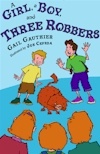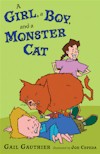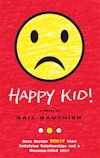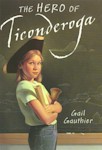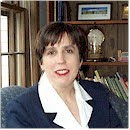Shockingly Bad
While I definitely do not believe in limiting myself to positive reader responses (I don't believe I do traditional reviews here), I also am too gutless to intentionally bash another author's work, no matter how awful I find it to be. I'll talk about it, but I won't name names. Why talk about it at all? Good question. Partly to vent, of course, but partly because a writer needs to analyze really bad writing. Even though I agree with those of you who think that "bad" is a matter of perception, my own writing might improve as a result of my focusing on what I don't like in the writing of others.
Yesterday, I read about 50 pages of someone else's writing that I really didn't like.
I was interested in the book because it was a YA mystery, and back in March at YA Authors Cafe some people said they felt more mysteries were needed for YA readers. Well, first off, I found the writing very flat and bland. I hate to say that about an author's work because I don't know how to fix something like that. It's like trying to explain color to someone who only sees black and white.
But last night as I was continuing reading, I began to notice that additonally nearly every page contained a cliched situation, if not true cliches. You had your immigrant grandmother who provides obstacles to the female protagonist going into an unusual field of work. You had the parent who is missing under mysterious circumstances. You had the dad who brings his only child into his business. (Shades of Nancy Drew.) You had the taciturn sheriff. (He actually said, "What in the Sam Hill are you doing here?") You had the James Dean-type deputy who admires the protagonist's backside. You had a teenage girl who's into boys. You had someone throwing up at the sight of a dead body. (Though, I will admit, it was particularly revolting. One way I could tell was that everyone kept talking about how ripe it was.)
This book also contained cliched sexual stereotyping like I have not seen in decades. The sheriff wanted to finish up work because his wife had cinnamon rolls waiting. The main character was described by her father as being unlike other girls because she was twice as smart as most of them. Her female friend told her she was like a guy because she was "into science and all that boy stuff."
Soon after that I decided I couldn't even skim this thing and gave up.
This book is the beginning of a series being published by a major publisher. An editor presumably thought this was good writing. I can't help but wonder what manuscripts he or she turned down in order to get this one into the publishing pipeline.
How might my own writing improve as a result of my griping to you about this book? I'll tell you one thing--if I ever have a character bake cinnamon buns, she won't be keeping them waiting for when the little man comes back from work.
Labels: Bad books
